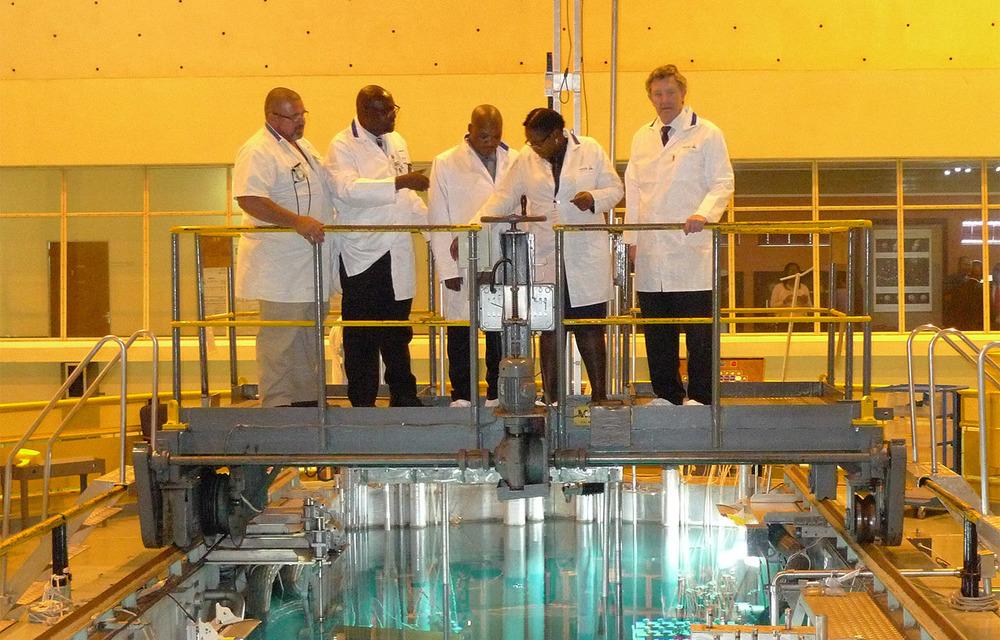Explore Our Bill Payment Services:

- Salary And Allowance
- Engineers Salary
- South Africa
Salary And Allowance Structure Of Chemical Engineers In South Africa
Chemical engineering is one of the most dynamic and impactful professions in South Africa. It touches nearly every aspect of industrial life, from the food we eat to the fuel we use, and from life-saving medicines to advanced materials in manufacturing. Because chemical engineers play such an integral role in transforming raw materials into valuable products, their salaries reflect both the complexity of their work and the demand for their skills.
However, the earning potential of a chemical engineer in South Africa is not uniform. It varies greatly depending on several factors, such as level of experience, geographic location, industry sector, and even academic qualifications. Allowances and benefits also form a major part of the total compensation package, making the picture of chemical engineering salaries richer than just the base pay.
This article provides a comprehensive breakdown of how much chemical engineers earn in South Africa, how salaries progress with experience, the impact of location, common allowances, and strategies professionals can use to maximize their income.
Average Salaries at a Glance
When looking at averages, chemical engineers in South Africa fall within a broad pay spectrum. Some surveys put the average monthly salary around R33,000, while others suggest that senior professionals can command over R1 million annually.
At the lower end, fresh graduates or early-career engineers typically earn between R120,000 and R185,000 per year, which translates to about R10,000 to R15,000 per month. At this stage, salaries are modest but provide a foundation for growth.
As professionals gain experience, the numbers rise considerably. Engineers with 5–10 years of experience can earn around R360,000 to R500,000 per year. Mid-career professionals are well-positioned in industries like mining or petroleum, where higher pay is the norm.
Seasoned engineers with 10–20 years of experience often enjoy annual pay ranging from R450,000 to R700,000, while those with advanced degrees, senior managerial responsibilities, or professional registration can earn well over R1 million per year.
This range highlights the importance of career progression and continuous development in maximizing income potential in the field.
Salary Progression by Experience
One of the clearest determinants of salary is professional experience. Chemical engineers typically see a steady climb in earnings as they progress from entry-level roles to senior positions. Here’s a breakdown of what to expect at different stages:
-
0–2 years of experience: Salaries typically range between R120,000 and R185,000 annually. This is the entry-level stage, often characterized by training programs, internships, or junior engineering roles. Many graduates initially struggle to find roles aligned with their degrees, sometimes starting at even lower pay before advancing.
-
2–5 years of experience: Salaries climb to between R240,000 and R313,000 per year. At this stage, engineers often take on more responsibility in process design, safety monitoring, or project work.
-
5–9 years of experience: Mid-career engineers earn between R360,000 and R500,000 annually. Many transition into supervisory roles or become specialists in fields such as petroleum refining, pharmaceuticals, or food processing.
-
10–15 years of experience: Salaries jump significantly to a range of R444,000 to over R700,000 annually. Engineers in this category often hold managerial or senior specialist positions. With professional registration, earnings can rise even higher.
-
15–20 years of experience: Professionals earn above R485,000 annually, with many surpassing the R1 million mark, depending on the industry.
-
20+ years of experience: Veteran chemical engineers with decades of expertise, especially those in executive positions or holding a PhD, can command salaries between R1.3 million and R1.6 million per year, sometimes even higher.
This progression shows that persistence and professional growth are richly rewarded in the chemical engineering field.
Geographic Variations in Pay
Location is another key factor in determining salary. Chemical engineers working in metropolitan hubs or industrial cities often earn significantly more than those in smaller towns.
-
Port Elizabeth is among the highest-paying regions, with average monthly salaries exceeding R44,000, translating to over R530,000 annually.
-
Johannesburg, South Africa’s economic capital, offers chemical engineers around R28,800 per month or R346,000 annually.
-
Durban pays approximately R24,600 monthly, which works out to around R295,000 per year.
-
Other areas like Cape Town, Stellenbosch, and Sandton show lower average pay, ranging from R12,000 to R15,700 monthly.
These differences often reflect the concentration of industries. Port Elizabeth, for instance, has strong manufacturing and industrial operations, while Johannesburg serves as the hub for corporate offices and mining companies.
Benefits and Allowances Beyond Base Salary
Base salary tells only part of the story. For chemical engineers in South Africa, allowances and benefits can significantly enhance total compensation packages.
-
Bonuses: Many employers offer annual bonuses ranging from R8,000 to R75,000, often linked to performance, company profits, or project milestones.
-
Insurance and Medical Aid: Engineers typically enjoy medical aid contributions, life insurance, and disability cover. Pension and retirement benefits are also common.
-
Flexible Working Arrangements: Certain companies provide flexible hours, remote work opportunities, or overtime allowances, depending on operational needs.
-
Education Sponsorship: Some employers invest in their engineers by funding postgraduate studies, professional certifications, or international training programs.
-
Industry-Specific Perks:
-
Petroleum sector: Entry-level salaries around R420,000, mid-career reaching R950,000.
-
Pharmaceuticals: Entry at R320,000, mid-career around R750,000.
-
Mining: Entry around R260,000, mid-career up to R620,000.
-
Food & Beverage: Entry-level at R220,000, mid-career reaching R520,000.
-
These benefits add significant value to overall earnings and can make one employer more attractive than another.
The Role of Education in Salary Growth
Education plays a pivotal role in salary progression. The higher the academic qualifications, the higher the earning potential.
-
Engineers with a Bachelor’s degree can expect to earn around R19,700 per month.
-
A Master’s degree increases salary potential by nearly 57%, raising monthly income to about R30,800.
-
A PhD in chemical engineering pushes salaries up by almost 68%, with monthly earnings often exceeding R51,000.
Additionally, engineers with advanced qualifications are more likely to secure leadership positions or specialized technical roles, further boosting their income.
Gender Pay Disparity
Unfortunately, the gender pay gap remains a reality in chemical engineering. Male chemical engineers earn, on average, around R1 million annually, while female engineers often earn closer to R637,000 per year. This amounts to a gap of nearly 38%, reflecting broader issues of inequality in the engineering profession. Addressing this disparity requires systemic change in hiring, promotions, and compensation practices.
Real-World Insights
Numbers tell one story, but the lived experiences of engineers bring context. Many graduates report that it can be difficult to secure a job immediately after completing their degree, with some starting at modest salaries of R10,000 to R25,000 per month. However, once established as process engineers or specialists, the financial rewards improve significantly.
Others emphasize the importance of professional registration (PrEng). Engineers with this credential often see their salaries jump substantially, with some earning well over R1 million annually. The registration signals competence, trustworthiness, and adherence to professional standards, making these engineers highly valued.
These personal accounts highlight the challenges of breaking into the industry but also the enormous financial potential for those who persevere.
Challenges and Context
While chemical engineering offers lucrative salaries, the profession is not without challenges:
-
Economic Fluctuations: Industries like mining and petrochemicals are vulnerable to global price shifts, which can affect hiring and salary levels.
-
High Expectations vs Job Market Realities: Graduates sometimes feel disappointed when initial salaries fall short of expectations, considering the academic rigor of the degree.
-
Gender Inequality: The persistent gender pay gap is a significant concern and needs to be addressed to encourage diversity in the profession.
-
Regional Pay Disparities: Engineers in big cities generally earn more than those in smaller towns, creating uneven opportunities across the country.
Strategies to Maximize Earnings
For chemical engineers aiming to boost their income, several strategies can make a difference:
-
Gain Relevant Experience: Each stage of progression—junior, mid-level, senior—brings salary increases. Focus on building expertise and leadership skills.
-
Pursue Higher Education: A Master’s or PhD can increase earning potential by more than 50%.
-
Obtain Professional Registration (PrEng): This opens doors to senior-level roles and higher salaries.
-
Target High-Paying Industries: Petroleum, pharmaceuticals, and mining generally pay more than food processing or smaller manufacturing firms.
-
Relocate if Necessary: Working in high-paying regions such as Port Elizabeth or Johannesburg can boost income significantly.
-
Negotiate Benefits: Don’t focus only on salary. Medical aid, pension, bonuses, and education sponsorship add real value to compensation packages.
Final Thoughts
Chemical engineering is one of South Africa’s most rewarding careers—both intellectually and financially. While entry-level salaries may seem modest compared to the effort required to earn the degree, the long-term rewards are undeniable. With persistence, professional growth, and strategic career moves, chemical engineers can rise from around R240,000 annually at entry-level to over R1 million per year as seasoned professionals.
The addition of benefits, allowances, and bonuses further enhances overall compensation, making chemical engineering not just a career but a pathway to financial security and professional fulfillment.
For aspiring engineers, the key is patience, continuous development, and leveraging opportunities. The journey may begin slowly, but the destination is worth the effort.









